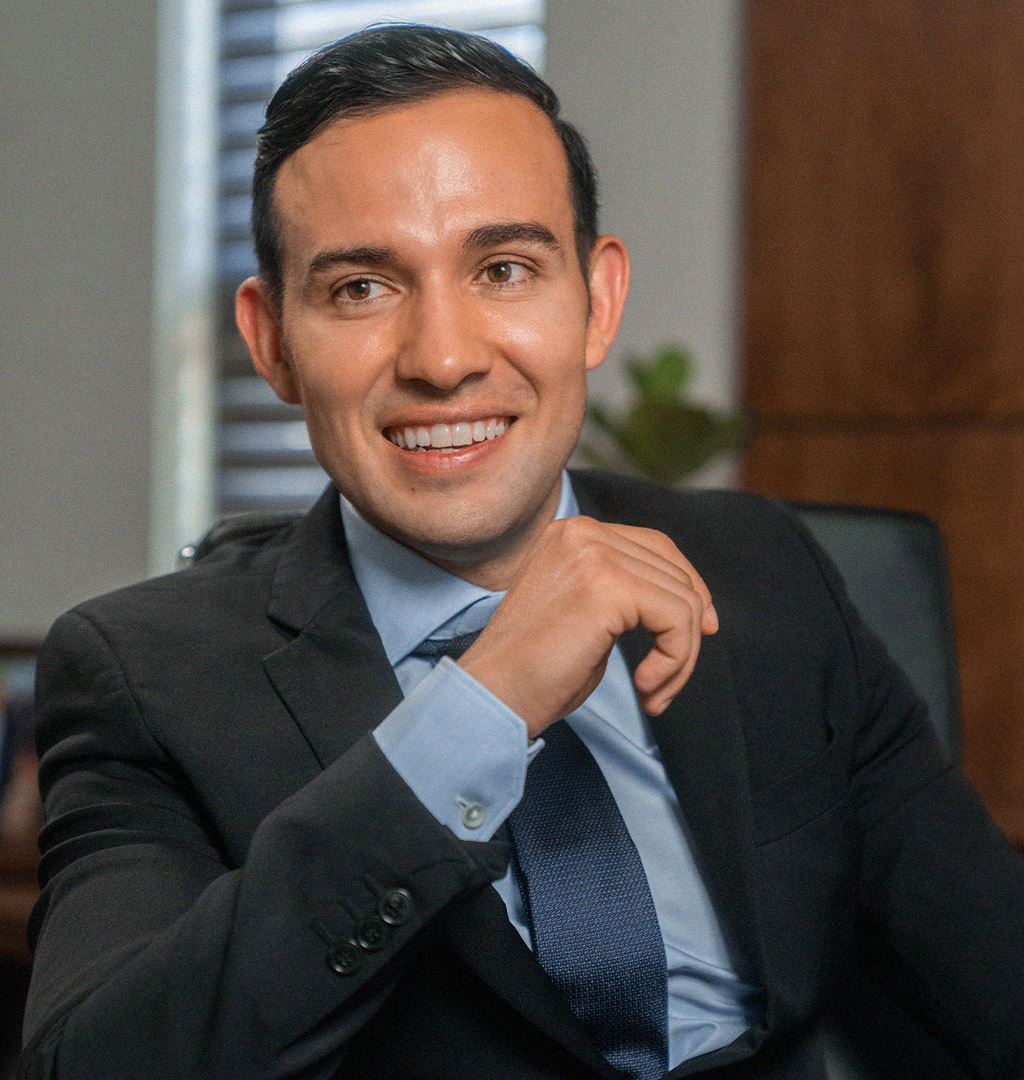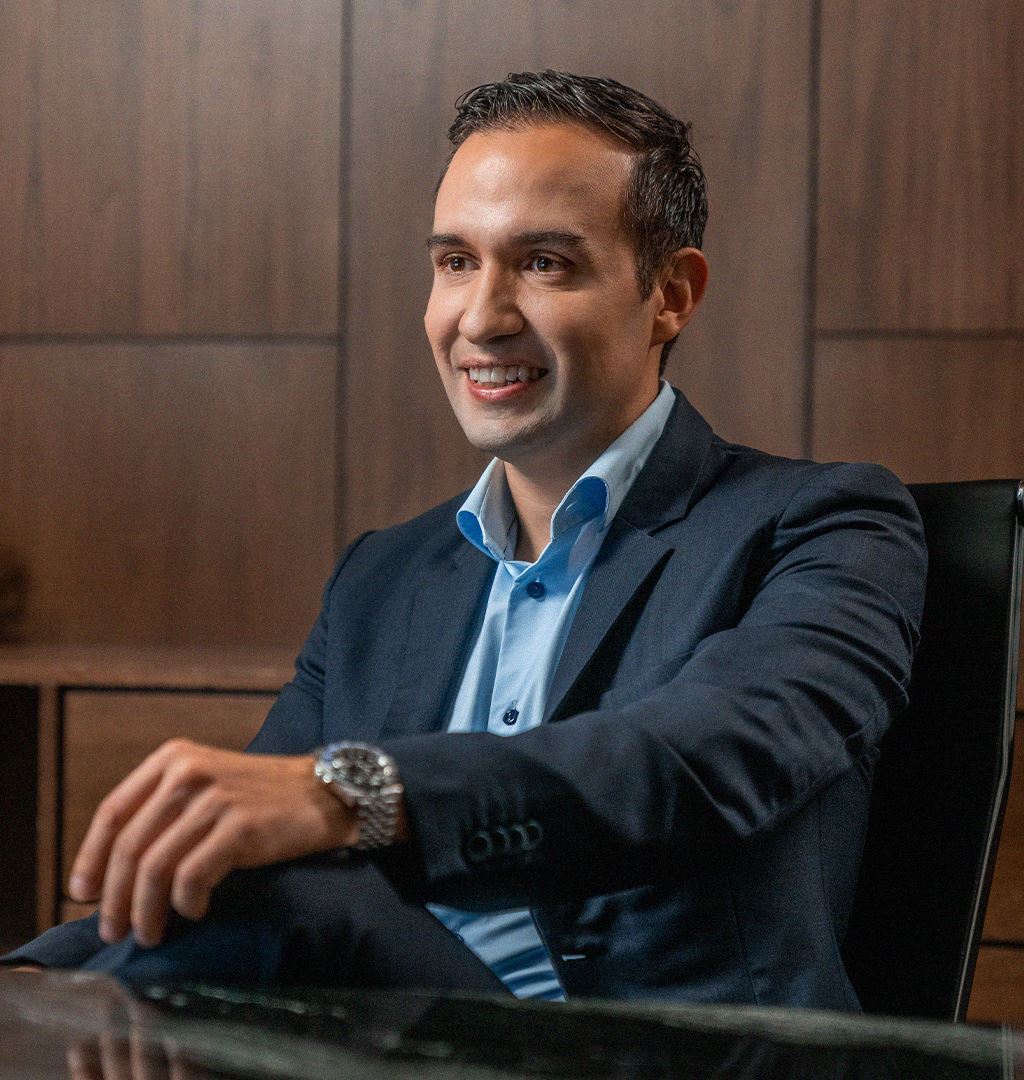
Rio Grande Valley Personal Injury Lawyer
Fighting For Injury Victims in Texas
In the heart of the Rio Grande Valley, Gonzalez and Associates P.C. stands as a steadfast ally for those facing the aftermath of personal injuries. Our legal team is dedicated to providing unwavering support and expert guidance to individuals navigating the complexities of personal injury claims. If you've found yourself in the unfortunate circumstances of an accident or injury, trust Gonzalez and Associates P.C. to be your advocate, tirelessly pursuing justice on your behalf.
Call Gonzalez and Associates P.C. today at (830) 445-2035 or contact us online to schedule a meeting with our personal injury attorney in Rio Grande Valley!
Personal Injury Cases We Handle
At Gonzalez and Associates P.C., we specialize in a comprehensive range of personal injury cases, recognizing each case's diverse challenges. Our legal expertise extends to:
What Evidence Do You Need in a Personal Injury Claim?
Building a strong personal injury claim requires compelling evidence to establish liability and quantify damages. At Gonzalez and Associates P.C., we guide our clients in collecting the necessary evidence to bolster their cases:
- Documentation of the Incident: Timely documentation is crucial. Collect photographs, witness statements, and any relevant documentation at the incident scene. This can serve as valuable evidence later in the claims process.
- Medical Records and Bills: Detailed medical records documenting injuries, treatment plans, and associated costs are essential. These records provide a clear picture of the extent of your injuries and the financial impact on your life.
- Police Reports: For law enforcement accidents, obtaining a copy of the police report is crucial. This report often contains key details about the incident, including statements from involved parties and officers.
- Expert Testimony: In complex cases, expert testimony can be instrumental. Our network of experts, including medical professionals and accident reconstruction specialists, strengthens the evidentiary foundation of your claim.
- Communication Records: Save any correspondence related to the incident, including emails, text messages, and communication with insurance companies. These records can provide context and support your version of events.
What Damages Could Be Recovered in a Personal Injury Claim?
Damages in a personal injury case can be broken down into several categories:
- Medical Expenses: Medical expenses often make up the largest portion of a personal injury settlement. These include hospital bills, surgeries, rehabilitation costs, and ongoing treatments such as physical therapy or medications. Compensation may also cover any future medical care you will require as a result of your injuries.
- Lost Wages and Loss of Earning Capacity: If your injury stops you from returning to work, either temporarily or permanently, you may be entitled to recover lost wages. Additionally, if your injuries affect your ability to work in the future, you may be compensated for the loss of earning capacity, ensuring that your long-term financial stability is protected.
- Pain and Suffering: In addition to economic damages, personal injury victims may pursue compensation for non-economic damages, such as pain and suffering. This includes the physical pain experienced due to the injury, as well as emotional trauma, anxiety, or depression that often accompanies serious injuries.
- Property Damage: If the incident that caused your injury also damaged your property, such as a car in a motor vehicle accident, you could be able to retrieve compensation to repair or replace the damaged property.
- Punitive Damages: In instances of particularly egregious or reckless behavior, punitive damages may be granted. These are intended to punish the at-fault party and serve as a deterrent for similar manners in the future.
How to Prove Negligence?
To do this, four key elements must be established:
- Duty of Care: The first step in proving negligence is establishing that the defendant owed you a duty of care. In many cases, this duty is implied, such as a driver having the duty to operate their vehicle safely and, by traffic laws, a property owner ensuring their premises are safe for visitors.
- Breach of Duty: Once a duty of care is designated, the next step is to prove that the defendant breached this duty. A breach occurs when the defendant's actions (or failure to act) fall below the standard of care that a reasonable person would have provided under similar circumstances. For example, a driver who is texting while driving or a business owner who fails to fix a known hazard on their property could be found to have breached their duty of care.
- Causation: After demonstrating that a duty of care was breached, it must be proven that this breach directly caused your injuries. This is known as "causation." The plaintiff must show that their injuries would not have happened but for the defendant's negligent actions. In some cases, causation can be clear-cut, such as in a rear-end car accident. However, in other cases, proving causation may require expert testimony or medical evidence.
- Damages: Finally, to recover compensation, you must be shown that you suffered actual damages due to the defendant's negligence. This includes physical injuries, medical bills, lost wages, and other quantifiable losses. If no actual harm occurred, then there is no basis for a personal injury claim, even if negligence can be proven.
```
Frequently Asked questions
Have questions? We are here to help. Still have questions or can't find the answer you need? Give us a call at (830) 445-2035 today!
-
Do I still have a case if I received a traffic citation stating I cause of the accident?The situation depends if the accident was not completely your fault. You can still recover damages from the other driver for the portion of the accident that was his or her fault.
-
Do I have to let my insurer know about the accident if the accident was not my fault?Yes, you need to inform your insurance company of the accident even if you weren't at fault.
-
What if I don’t report the accident to my insurance company?If you do not report the accident, the insurance company may deny payment of any claims you file subsequently. Your insurance company must notify you within 30 days of receiving proper notice of the claim whether it will pay or deny your claim, or inform you that it is still in the investigation stage.

Contact Our Rio Grande Valley Personal Injury Attorney Today
In the challenging aftermath of a personal injury, Gonzalez and Associates P.C. is a beacon of legal expertise and unwavering support. With a steadfast commitment to securing the best possible outcomes for our clients, we navigate the complexities of personal injury claims with tenacity and precision. Trust us to be your advocates, fighting tirelessly to ensure you receive the justice and compensation you rightfully deserve in the Rio Grande Valley.
Contact Gonzalez and Associates P.C. today to schedule a meeting with our personal injury lawyer in Rio Grande Valley!
